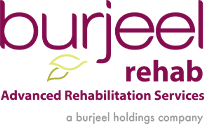Prehabilitation, also known as prehab, is a proactive approach to rehabilitation that focuses on optimizing physical function and fitness before surgery. By preparing the body for upcoming surgical procedures, prehabilitation aims to enhance recovery outcomes, minimize complications, and expedite postoperative rehabilitation.
Significances
Enhancing Physical Fitness
Prehabilitation improves cardiovascular health, muscular strength, flexibility, and endurance, enhancing the body's capacity to withstand the stress of surgery and anesthesia.
Reducing Surgical Risks
Prehabilitation reduces the risk of surgical complications, such as infections, blood clots, and postoperative delirium, by optimizing overall health and fitness before surgery.
Facilitating Postoperative Recovery
Prehabilitation prepares individuals for the physical demands of postoperative rehabilitation, promoting faster recovery, improved functional outcomes, and reduced length of hospital stay.
Empowering Patient Engagement
Prehabilitation encourages active participation in the recovery process, empowering individuals to take ownership of their health and well-being before and after surgery.
Measures to Support
Comprehensive Assessment
Undergo a thorough evaluation by a multidisciplinary team, including physicians, physical therapists, and exercise physiologists, to assess baseline function, identify impairments, and set rehabilitation goals.
Individualized Exercise Program
Engage in a tailored exercise program focusing on cardiovascular conditioning, strength training, flexibility exercises, and balance training, addressing specific needs and goals.
Nutritional Optimization
Follow a balanced diet rich in nutrients, vitamins, and minerals to support tissue healing, immune function, and overall health before surgery, promoting optimal recovery outcomes.
Smoking Cessation
Quit smoking or avoid tobacco use before surgery to reduce the risk of surgical complications, improve wound healing, and enhance respiratory function.
Stress Management
Practice relaxation techniques, mindfulness, and stress-reduction strategies to alleviate anxiety, promote mental well-being, and optimize the body's response to surgery and recovery.
Stress Management
Practice relaxation techniques, mindfulness, and stress-reduction strategies to alleviate anxiety, promote mental well-being, and optimize the body's response to surgery and recovery.
Education and Counseling
Receive education on prehabilitation goals, expectations, and strategies, as well as information about the surgical procedure, anesthesia, and postoperative care, empowering informed decision-making and active participation in the recovery process.
Lifestyle Modifications
Adopt healthy lifestyle habits, including regular exercise, adequate sleep, hydration, and stress management, to support overall health and well-being before surgery.
Compliance and Follow-Up
Adhere to prescribed prehabilitation protocols, attend scheduled exercise sessions, and communicate with healthcare providers to monitor progress, address concerns, and adjust treatment as needed.


